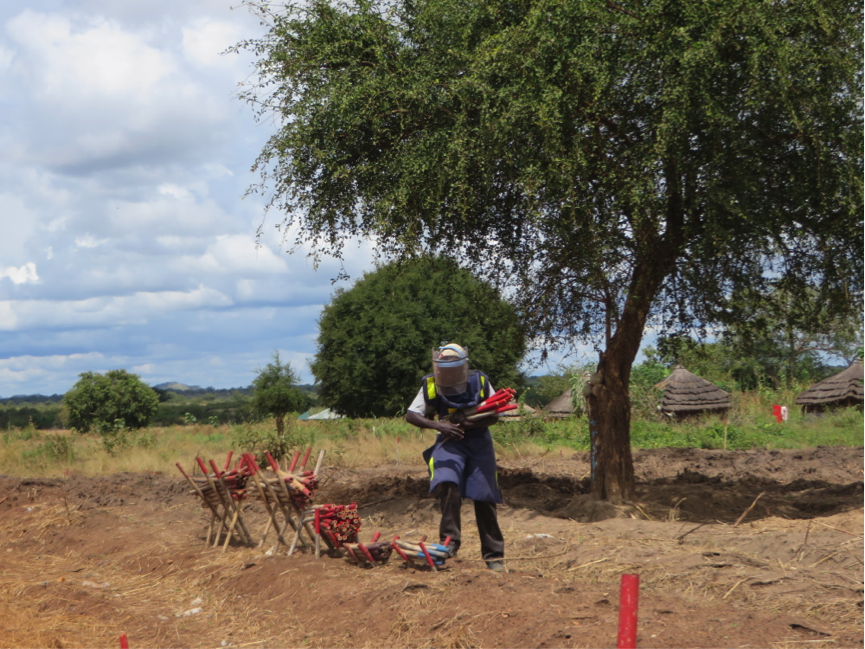
Image: A MineTech International demining site in Kuda with suspected anti-vehicle mine presence. Demining personnel use the red posts to indicate the boundaries of mine presence (SIPRI 2013).
Earlier this month, SIPRI researchers Tamara Patton and Lina Grip travelled to South Sudan as part of a study on the humanitarian and developmental impact of anti-vehicle landmines, conducted jointly with the Geneva International Center for Humanitarian Demining (GICHD).
As member states of the Convention on Certain Conventional Weapons (CCW) continue to debate the possible need for further regulation of anti-vehicle mines (a type of landmine still widely used) the demand for further data and analysis on the civilian impact of this type of weapon has remained.
SIPRI and GICHD are cooperating to fill this need through conducting a global survey process and three more detailed impact case studies in Cambodia, South Sudan and Afghanistan.
Although the study is ongoing, initial findings indicate that anti-vehicle mines can indeed have an indiscriminate effect on civilians, and that impact from anti-vehicle mines can significantly increase as a state progresses in its post-conflict recovery and development efforts.
On 14 November Patton presented the preliminary findings of the joint study at the annual CCW Meeting of States Parties. The full version of the study will be published in April 2014 and presented at the CCW Meeting of Experts.